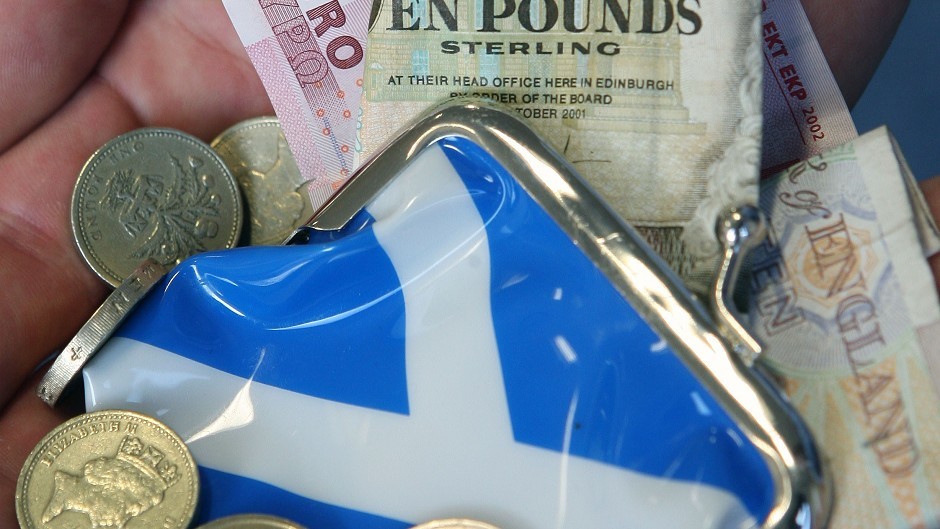Scotland’s economy finished 2014 on a “solid footing”, according to a report.
A monthly survey by the Bank of Scotland found employment and business output grew in December, continuing at the same rate as the previous month.
It is forecast that the economy will expand during 2015 but at a slower rate than last year.
The Bank’s Purchasing Managers’ Index (PMI) collects information from around 600 companies operating in the manufacturing and service sectors.
The growth of new business during December was found to be joint-fastest in the past five months, while employment continued to rise at an unchanged rate from November, remaining among the fastest in the survey’s 17-year history.
New export orders at manufacturers continued to fall but at a slow rate, the report said.
Donald MacRae, chief economist at Bank of Scotland, said: “December’s PMI was 52.8 indicating solid growth in the final month of last year. Both manufacturing and services sectors employed more people and experienced welcome increases in the level of new orders.
“However, new export orders fell for the tenth time in 11 months confirming the challenges of exporting to the largely stagnant Eurozone economies.
“The Scottish economy continued to recover in the second half of 2014 and looks set to expand during 2015, but with growth easing compared to the high levels of the first six months of 2014.”
The report was welcomed by the Scottish Government.
Deputy First Minister John Swinney said: “With further improvements in economic conditions expected this year, this should bring opportunities for business and greater financial security for households across the country.
“Whilst the survey highlights that conditions for exporters remain challenging – particularly with continued weakness in some of Scotland’s key export markets – the PMI still points to a solid end to 2014.
“This Government is determined to build a fairer, more sustainable, and more balanced economy that will bring opportunities for businesses and security for hard working people across the country.”
A second economic report predicted a “confidence cocktail” was brewing with low inflation, falling costs, solid jobs growth and rise in real wages among Scottish businesses.
The BDO Optimism Index, which tracks how businesses expect orders to develop over the near term, found that confidence rose to a new quarterly high of 104.9 in December, well above the 100 mark indicating the long-term average.
However, the report also urged caution over the continuing fall in oil prices and the effect it will have on the North Sea industry and potential business uncertainty around the General Election in May.
Martin Gill, head of BDO LLP in Scotland, said: “This is a positive start to the year although I would urge caution on being too optimistic on a single month’s results.
“Optimism has increased, hiring expectations remain strong and inflationary pressures are down. But there are clouds on the economic horizon. The falling oil price is both good and bad news for Scotland with lower prices easing transportation and some production costs but equally posing a threat to the Scottish oil and gas industry and its direct and indirect employees.
“Equally uncertainty in the Eurozone and the instability which the general election may cause should make businesses think a little about longer term issues such as investment and growth.”
